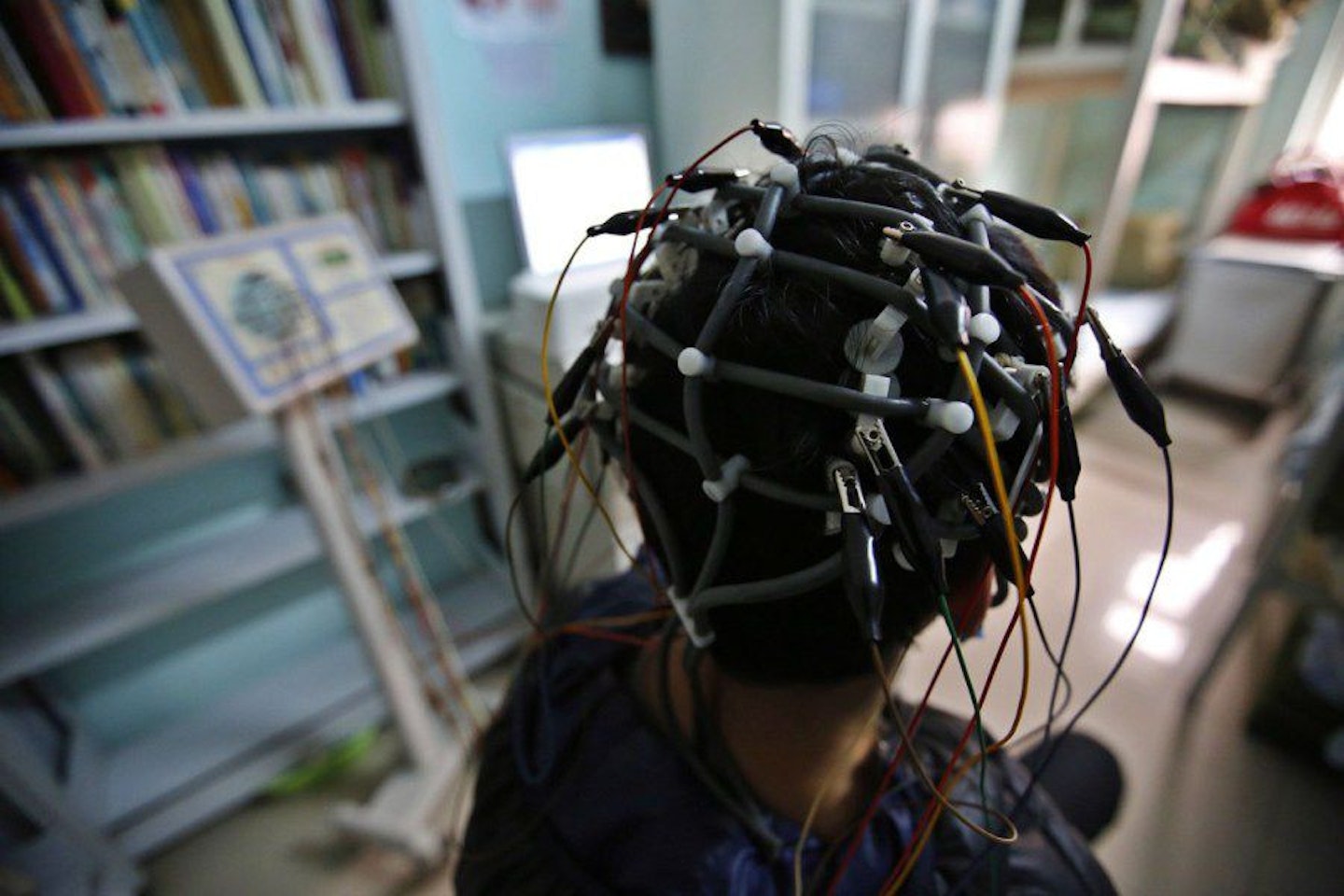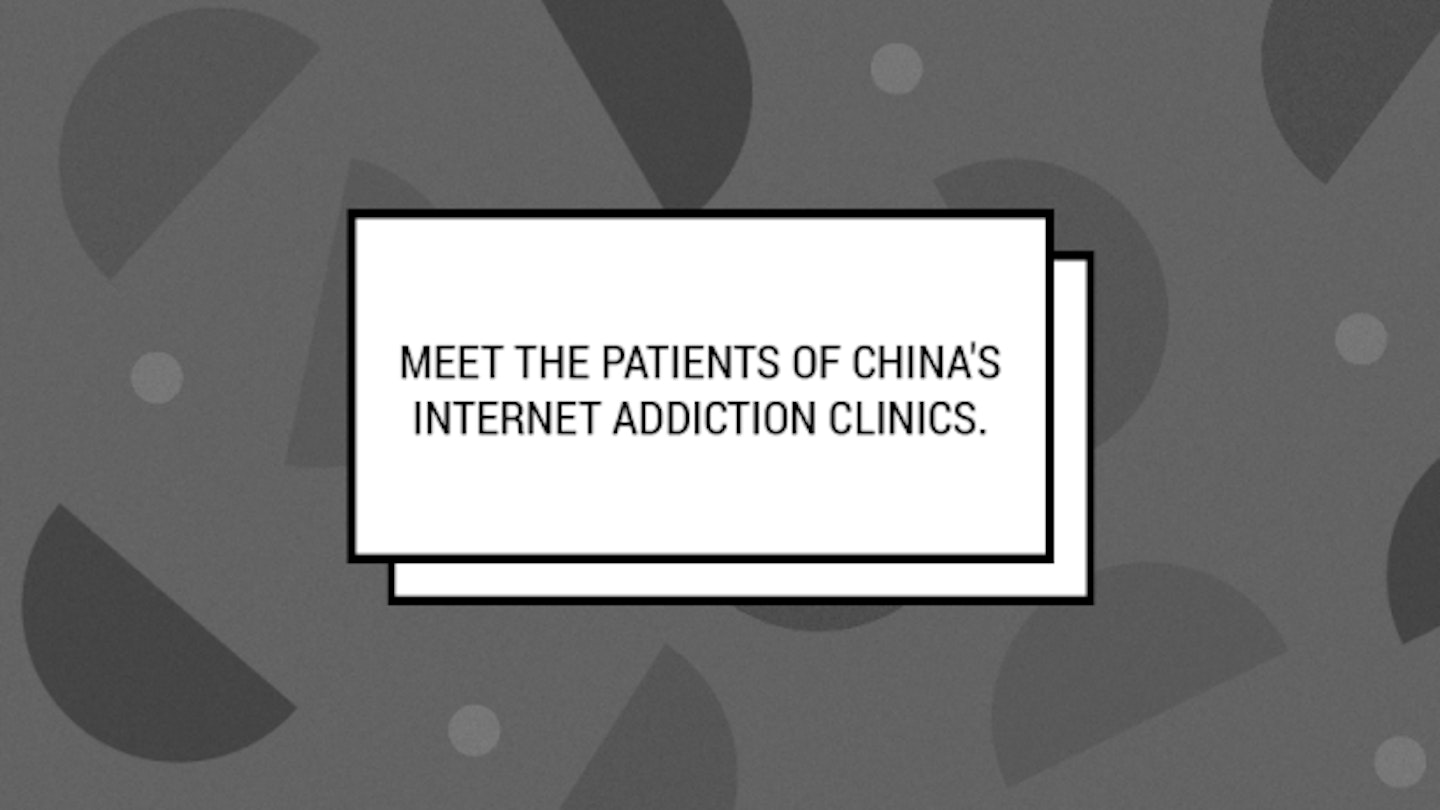Five years ago, it was estimated that 14% of China’s youth population were suffering from internet addiction disorder. That’s 24 million people. Since then, experts estimate at least 300 rehabilitation centres have sprung up to meet the needs of an Internet-obsessed generation. But are these centres doing more harm than good?
Reports suggest the most extreme clinics use electric shock therapy, solitary confinement and militaristic physical training to bring young people back into line. And in a sinister twist, reports this summer even claimed that one teenager was beaten to death in one of these clinics. Chun* from Chengdu, Sichuan Province, entered a rehabilitation clinic when she was just 17 years old. She’s now a 20-year-old college student, studying for a degree in business administration who dreams of working in a state-owned company, and marrying her boyfriend. But she says she’ll never forget those five months.
When did you realise that you were addicted to the internet?
In my third year of high school, I suddenly had a lot of homework to do, and I couldn’t find enough time to finish it all. Before I could always find time to play computer games, watch movies and read novels online. But suddenly, I couldn’t find any time to even touch computer, and that feeling was killing me.
How much time did you spend at your computer every week?
Maybe around 40 hours per week. At weekends, apart from eating meals, going to the toilet, having some sleep and doing homework, I almost spent all the remainder time surfing the Internet. Sometimes I even stayed up all night playing computer games. I muted my computer so my parents wouldn’t find out.
**How did this affect your relationships with your friends and family? **
Back then, I didn’t have many friends in real life. Most of my time was spent at computer playing computer games, so I made friends with strangers online so we could form a team to fight other teams in online games.
In real life, I was always absent-minded in class and unsociable among classmates. All I had were a bunch of friends whom I had meals with. I was seen as a loser, who wouldn't join in with any school activities, and didn't even do well academically.
However, I was a completely different person online. I made friends, had a good 'virtual' job and even ‘got married’ online. My online life was perfect. I was worshiped online as ‘my husband’ and I formed a very strong team in a certain online game.
Why did you decide to go to the clinic for help?
I had a huge argument with my parents. I felt awful afterwards and suddenly I realised that my only friends in real life were my parents. They weren't talking to me, so I was completely alone at school and at home.
I told my parents about my addiction that night and we agreed on seeking an expert’s help. I was scheduled to go to the clinic as soon as the summer break began.
Was it expensive and how did you pay?
Yes, very expensive. It was around 40,000 yuan [£4,000]. My parents paid it.
Did you tell people you were going?
No, I didn’t have many friends to tell.

**What was the clinic like? **
It was a mixed clinic, and I spent five months in a room shared with three other girls, aged between 15 and 17. I was the eldest. The youngest girl in the centre was 11 years old. There was no TV and no access to the Internet. Every morning, we has had military-like training, such as push-ups and sit-ups. We had regular brain scans – I don’t know what this was for. And we also had to take daily medication. We each had our own quantity and kinds of pills.
I remember there was a certain yellow pill. Every time I took it, I felt drowsy. Then I started to hide that pill under my tongue and spit it out when nurses left. Once a week, there was psychotherapy. Sometimes I was asked to do tests and sometimes I had conversations with therapists.
We also had classes teaching traditional Chinese morals and ethics, social responsibility, what the meaning of life should be, and what kind of person we should strive to be. And we were required to read inspirational books and hand in reports after we finished them.
**Were you lonely? **
Yes. It was the first time I'd ever stayed in a strange place alone without my parents – it was frightening at first. During those five months, my parents came to see me only once every month. The clinic forbade any more visits because it believed that patients would be distracted from their treatment.
What was the hardest part of the experience?
The hardest part was in the first month. The daily routine was different. Everything was set. I couldn’t sleep late into the noon as I did before. They told me when to get up, when to have exercise, when to take pills, eat meals, take shower, go to bed and so on.
**What were the staff like? **
It felt like a combination of a school and a clinic. I had teachers, nurses and psychotherapists. They were good, although they occasionally became impatient with me.
How soon after coming out of the clinic did you go on the Internet?
About a month later. During the first month, I only read books and ocassionally watched the news on TV. When I did eventually go on the Internet, I felt like I had a totally new attitude to it. In the past, I just saw a computer as a game machine, but suddenly I saw it as a useful tool.
**Since coming home, have you talked about what happened? **
No, this is the first time I talked about my experience to someone other than my parents. I don’t want others to know my past. Being addicted to the Internet, and going to a clinic for that, is not something I am proud of. I feel guilty.
**How is your life different now? **
Generally speaking, I now can control my time spent on the Internet, which means I have more time to participate in activities. I am less addicted. When I went to university, I became a member of the Student Union where I met my boyfriend. He also majors in Business Administration.
We organised activities together, and had classes together, and over time we become close. Then at the end of the first year in college, he asked me to be his girlfriend, and I agreed – I hope to marry him someday.
Have you told him about attending the clinic?
No one except my parents knows my past experience, and I don't think there’s any need to tell my boyfriend and my future employers about this. I'm not as addicted to the Internet now, but I don't want my past to negatively affect my love life and my career – and I think it might if they knew.
Internet addiction is like a label. If someone knows you are addicted to or were once addicted to the Internet, they will associate certain words with you. People will assume you're unsociable and irresponsible.
**Have you also made real-life friends now? **
Yes. I have friends from different majors, and through the Student Union. The only thing I ever cared about was the computer, but now I'm interested in so many other things – such as singing, hiking, and organising events. It's like my life is more colourful now than it ever was before.
Follow Sarah on Twitter [@sarahomeara
Pictures: Reuters
This article originally appeared on The Debrief.
